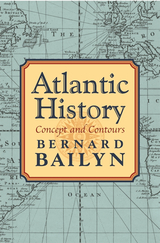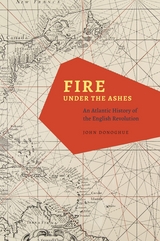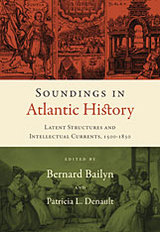
Atlantic history is a newly and rapidly developing field of historical study. Bringing together elements of early modern European, African, and American history--their common, comparative, and interactive aspects--Atlantic history embraces essentials of Western civilization, from the first contacts of Europe with the Western Hemisphere to the independence movements and the globalizing industrial revolution. In these probing essays, Bernard Bailyn explores the origins of the subject, its rapid development, and its impact on historical study.
He first considers Atlantic history as a subject of historical inquiry--how it evolved as a product of both the pressures of post-World War II politics and the internal forces of scholarship itself. He then outlines major themes in the subject over the three centuries following the European discoveries. The vast contribution of the African people to all regions of the West, the westward migration of Europeans, pan-Atlantic commerce and its role in developing economies, racial and ethnic relations, the spread of Enlightenment ideas--all are Atlantic phenomena.
In examining both the historiographical and historical dimensions of this developing subject, Bailyn illuminates the dynamics of history as a discipline.

Prominent merchant revolutionaries from Coleman Street led England’s imperial expansion by investing deeply in the slave trade and projects of colonial conquest. Opposing them were other Coleman Street puritans, who having crossed and re-crossed the ocean as colonists and revolutionaries, circulated new ideas about the liberty of body and soul that they defined against England’s emergent, political economy of empire. These transatlantic radicals promoted social justice as the cornerstone of a republican liberty opposed to both political tyranny and economic slavery—and their efforts, Donoghue argues, provided the ideological foundations for the abolitionist movement that swept the Atlantic more than a century later.

During the era of the Atlantic slave trade, more than twelve million enslaved Africans were forcibly transported to the Americas in cramped, inhuman conditions. Many of them died on the way, and those who survived had to endure further suffering in the violent conditions that met them on shore. Covering more than three hundred years, Humans in Shackles grapples with this history by emphasizing the lived experience of enslaved people in tracing the long, complex history of slavery in the Americas.
Based on twenty years of research, this book not only serves as a comprehensive history; it also expands that history by providing a truly transnational account that emphasizes the central role of Brazil in the Atlantic slave trade. It is also deeply informed by African history, and it shows how African practices and traditions survived and persisted in the Americas among communities of enslaved people. Drawing on primary sources including travel accounts, pamphlets, newspaper articles, slave narratives, and visual sources including both artworks and artefacts, Araujo illuminates the social, cultural, and religious lives of enslaved people working in plantations and urban areas; building families and cultivating affective ties; congregating and recreating their cultures; and organizing rebellions.
Humans in Shackles puts the lived experiences of enslaved peoples at the center of the story and investigates the heavy impact these atrocities had on the current wealth disparity of the Americas and rampant anti-Black racism.

These innovative essays probe the underlying unities that bound the early modern Atlantic world into a regional whole and trace some of the intellectual currents that flowed through the lives of the people of the four continents. Drawn together in a comprehensive Introduction by Bernard Bailyn, the essays include analyses of the climate and ecology that underlay the slave trade, pan-Atlantic networks of religion and of commerce, legal and illegal, inter-ethnic collaboration in the development of tropical medicine, science as a product of imperial relations, the Protestant international that linked Boston and pietist Germany, and the awareness and meaning of the Atlantic world in the mind of that preeminent intellectual and percipient observer, David Hume.
In his Introduction, Bailyn explains that the Atlantic world was never self-enclosed or isolated from the rest of the globe but suggests that experiences in the early modern Atlantic region were distinctive in ways that shaped the course of world history.
READERS
Browse our collection.
PUBLISHERS
See BiblioVault's publisher services.
STUDENT SERVICES
Files for college accessibility offices.
UChicago Accessibility Resources
home | accessibility | search | about | contact us
BiblioVault ® 2001 - 2024
The University of Chicago Press









